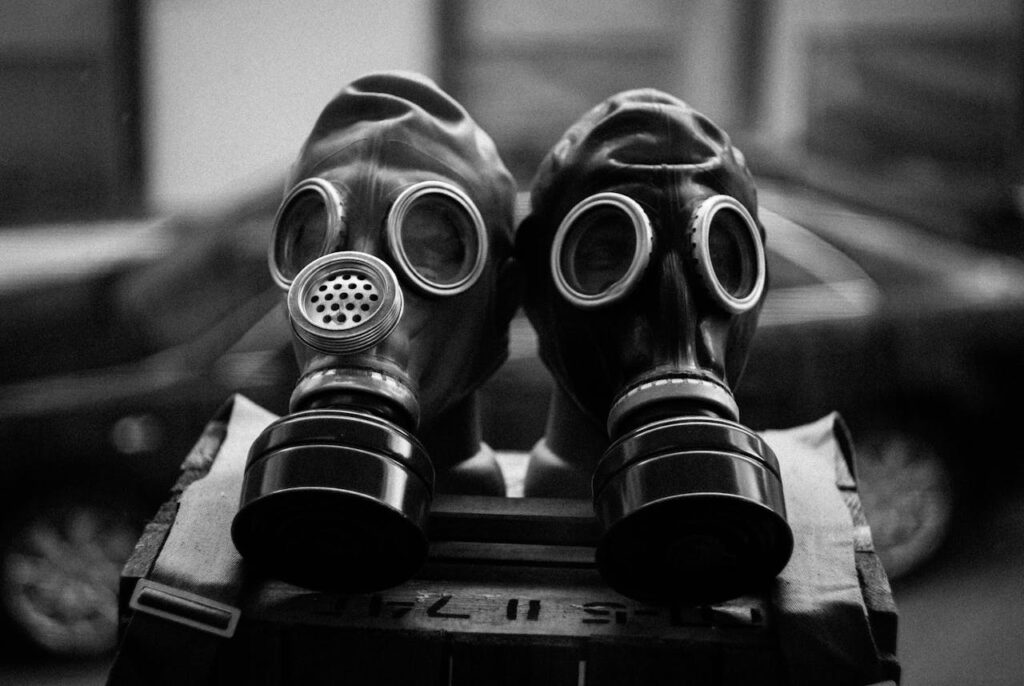- Author: Semran Murtezani, Master of International Law
“The Vinca Case” is a novel by Goran Milasinovic that recounts a tragic incident at the Vinca Nuclear Institute in 1958. Although a work of fiction, the novel’s subject matter is specific and unique, holding significant historical value for understanding the political, scientific, and security dynamics of former Yugoslavia and beyond. The narrative explores the ethical, humanitarian, and scientific complexities surrounding nuclear research, detailing how the futures of six scientists at the Vinca Nuclear Institute transformed in unimaginable ways. Notably, the novel is grounded in real events.

The title, “The Vinca Case” refers to the village of Vinca, home to a laboratory dedicated to nuclear research during the Cold War. This era in Yugoslav history was characterized by a complex interplay of scientific ambition and political tension, particularly in the realm of nuclear weapons development. Six scientists at the laboratory suddenly found themselves in a life-altering situation following a catastrophic accident, exposed to lethal levels of radiation during a nuclear experiment. Milasinovic’s fluid narrative style provides a detailed and accessible portrayal of the events, creating a vivid and compelling account of this pivotal moment.
After World War II, nuclear weapons development reshaped international relations and marked a new phase in human history. Rivalry among states centered on advancing their nuclear capabilities, posing new challenges across economic, political, and scientific spheres. Nations sought to adapt to contemporary policies to gain prestige on the international stage, while also striving to establish protective mechanisms against potential threats to national security.
The Vinca incident marked a turning point in Yugoslavia’s approach to nuclear technology. It drastically altered the lives of six ambitious scientists, some just at the outset of their careers, who suddenly faced a life-or-death situation due to high radiation exposure. The need for urgent medical intervention was critical, as the consequences of the incident were severe and shocking. Fortunately, the Yugoslav state decided to cover all medical expenses for their recovery, bolstering the state’s image as a caring protector of its citizens. This was not mere political rhetoric; from start to finish, the state ensured the injured scientists received world-class treatment at the renowned Curie Institute in France. However, an unexpected challenge awaited them during their treatment.
At the heart of “The Vinca Case” is an ethical dilemma faced by a French doctor involved in the scientists’ recovery. This character personifies the moral conflicts that arise when medical experimentation intersects with nuclear science. As the doctor confronts the consequences of the accident, readers are invited to reflect on the complexities of scientific progress and the ethical weight of human life in its wake.
Despite using all conventional methods, the doctor’s efforts to treat the scientists prove unsuccessful. He is left with a profound ethical dilemma: should he proceed with a groundbreaking, experimental treatment or leave the scientists’ fates to chance? This decision is fraught with uncertainty; the doctor must first convince himself and then his colleagues, aware that success is far from guaranteed. Nevertheless, the severity of the circumstances drives him to make a historic choice—to proceed with the bold experiment. Under the careful supervision of the Curie Institute, preparations for the treatment begin.
Ultimately, the experiment succeeds with five of the six scientists, marking the first successful human bone marrow transplants and a major milestone in medical history. However, Vladimir Gavric, one of the scientists, does not survive the transplant process. This event is not only a significant scientific breakthrough but also an emblem of friendship between France and the former Yugoslav Republic, particularly among the survivors, donors, and medical personnel involved.
In summary, the novel underscores the delicate balance between fortune and misfortune. In the aftermath of the incident, the Yugoslav government formed a commission to examine the causes and consequences of the tragedy, concluding that the incident was due to “unprofessionalism and negligence.” Through this novel, readers are given an in-depth exploration of both a tragic incident and a remarkable story of medical success, conveyed with meticulous detail.